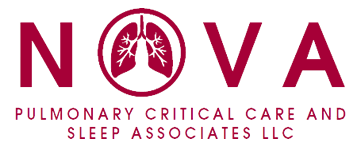Coughing is a widespread symptom resulting from a healthy reflex of the respiratory tract meant to clear the airways. It is sometimes a transient, mild, and self-limited symptom, but depending on its severity and quality, it can be relevant to diagnose significant health problems.
Common causes can be divided into acute cough and chronic cough.
What causes an acute cough?
Acute cough is limited to a short period, usually 15 days or less. It may have a sudden or insidious onset, and common causes include infectious and allergic diseases.
- Common cold and other respiratory infections: Most infectious diseases of the respiratory tract feature either dry or productive cough. In the latter, the sputum can be transparent or contain pus and debris (1).
- Croup: It is more common in children, and caused by a viral infection. Patients with croup experience respiratory distress, a hoarse voice, and the onset is often abrupt and tend to worsen at night. The symptoms won’t usually last for more than 2 days, but these patients often need medical attention to recover faster (2).
- Asthma: It is a common respiratory condition that involves allergic reactions and inflammation of the airways. The inflamed airways are narrow, patients display a wheezing sound when breathing in, and the cough reflex becomes activated (3).
- allergies: Seasonal allergies often cause wheezing and cough as predominant symptoms. It can be a consequence of allergic rhinitis, and a transient reflex to prevent aspiration of foreign particles and substances into the respiratory tract (4).
What causes a chronic cough?
Chronic cough is diagnosed when this symptom is reported for 8 weeks or more. It is usually caused by a complication of another health problem, or as a result of medications for chronic diseases.
- Gastroesophageal reflux disease (GERD): In GERD, acid reflux causes irritation in the esophagus and significant inflammation. Acid reflux may also affect the larynx, causing a hoarse voice and cough (5).
- Chronic obstructive pulmonary disease (COPD) and Asthma: It is a consequence of long-term exposure to irritants of the respiratory tract. The most common cause is cigarette smoking, and patients develop a chronic productive cough that is usually aggravated in the morning (6).
- Upper Airway Cough Syndrome (UACS): Caused by environmental allergens
- Medications for chronic disease: Certain medications for chronic diseases may cause cough as a side effect. The most common is angiotensin-converting enzyme inhibitors (ACE inhibitors). They are drugs used to lower blood pressure in patients with hypertension (8).
Cough Symptoms, Diagnosis and Treatment
Cough is a common complaint, and it is usually diagnosed by considering the characteristics of the symptom, other accompanying signs and symptoms, a complete blood count, and an X-Ray. Viral infections will be treated with support measures to relieve the symptoms, bacterial infections are treated with antibiotics, and allergic conditions can be treated with corticosteroids, nebulization, and inhaled medications.
In some cases, repeated episodes of acute cough and cases of chronic cough should be evaluated by a pulmonologist, a specialist in the lungs, and the respiratory tract. He will be able to assess and follow-up complicated cases, do Pulmonary function test and provide appropriate treatment to control cough and other symptoms associated with the respiratory tract.



